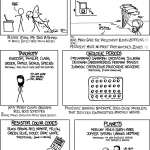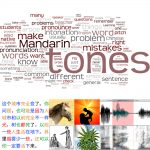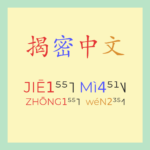You searched for mnemonics | Hacking Chinese
-
Are mnemonics too slow for Chinese learners?
Mnemonics are very effective for certain types of learning, but how effective are they for learning Chinese? This article is the first of two that looks at the effectiveness of mnemonics, focusing on the question of speed. Are mnemonics too slow to be really useful in the context of using a foreign language?
Read → -
Don’t use mnemonics for everything
Mnemonics are really cool, but you shouldn’t overuse them. Chinese characters are very complex and the amount of information you might want to remember about them is large. Creating mnemonics for everything is very time consuming and difficult. Instead of doing this, create mnemonics only for things you actually find hard to remember.
Read → -
How to create mnemonics for general or abstract character components
Anyone who has tried mnemonics for learning Chinese characters knows that some components are easier to link together than others. This article discusses in detail how to deal with abstract or general character components and how to handle components with the same or overlapping meaning, an essential skill if you’re serious about character learning.
Read → -
Extending mnemonics: Tones and pronunciation
Using mnemonics to memorise concrete objects is fairly easy, but how can we use mnemonics to remember abstract things such as tones and pronunciation? In this article, I expand my previous discussions of mnemonics and show how they can be quite powerful if you’re prepared to invest some extra time.
Read → -
Using memory aids and mnemonics to make Chinese easier
Remember almost anything is a skill that can be learnt. In fact, some of the methods I talk about in this article have been known for thousands of years. Most mnemonic methods use the power of association to enable us to remember things. In this article, I discuss how we can use this to help us learn Chinese much more efficiently than if we rely on conventional methods.
Read → -
The Hacking Chinese guide to Mandarin tones
Learning tones is a unique challenge for most learners of Chinese. What are tones? How important is it to learn tones? And how do you learn to both hear and pronounce them?
Read → -
Skritter review: Boosting your Chinese character learning
Skritter is a modern tool for learning ancient characters. It combines research-based methods such as active recall and spaced repetition with great Chinese-specific tools and content. While it’s not a free resource, it has enough edges over more generic, free services to be worth it in my opinion.
Read → -
Should you use an efficient method for learning Chinese even if you hate it?
Methods for learning Chinese can be good because they are efficient, because they to focus on the right content, or because they are enjoyable, allowing you to spend more time. But no method is good in all these ways at once, so what should you do if you just don’t like the most efficient method?
Read → -
Kickstart your learning with the Skritter Character Course
What’s the best way to learn Chinese characters as a beginner? The Skritter character course is my best attempt at answering that question.
Read → -
7 ways to write Mandarin tones
There are many ways of writing down the tones of Mandarin beyond the standard tone marks. Which are they and what pros and cons do they have for learners?
Read →









